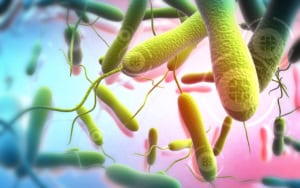At the Institute for the Advancement of Food and Nutrition Sciences research serves as the foundation for our actions. See our current grant opportunities below.
Current Opportunities:

Scientific integrity is a core value of IAFNS. Learn how we embed scientific integrity into every step of our research process.
Projects Funded by IAFNS:
IAFNS's mission is to advance food safety and nutrition science for the benefit of public health. View projects funded by IAFNS below, and learn how we embed scientific integrity into every step of our research process.
Host Microbiota Interactions: A Personalized Point of View
Recorded April 18, 2024 Description: The laboratory of Dr. Benoit Chassaing, Team Leader at INSERM located at Institut Pasteur in Paris, focuses on mucosal microbiota in chronic inflammatory diseases. The central objective of his research team is to study the composition and function of the microbiota at the mucosal surface, in both health and disease […]
USDA Global Branded Food Products Database Dual Column Nutrition Data Project
The USDA Global Branded Food Products Database is a public-private partnership between the U.S. Department of Agriculture (USDA), the Institute for the Advancement of Food and Nutrition Sciences (IAFNS), GS1 US, 1WorldSync and the University of Maryland (UMD), whose goal is to enhance public health and to share open data by augmenting the USDA FoodData […]
Translating Carbohydrate Quality Into Evidence-Based, Consumer-Relevant Approaches
Consumer confusion about carbohydrates can lead to restriction diets with low overall healthfulness. Ultimately, this project aims to help consumers select healthier choices among food sources of carbohydrates by merging the scientific evidence with consumer perspectives. NORC at the University of Chicago is conducting research to understand how consumers make decisions about the healthfulness of […]
Myths and Realities of Artificial Intelligence: Setting the Record Straight
Recorded December 5, 2023 Description: As the food & nutrition community starts to build a general understanding of Artificial Intelligence (AI) and its uses, this webinar address common myths and realities regarding AI. First, there are the subsets – machine, deep, and generative learning, which are terms sometimes used interchangeably or incorrectly. In addition, what […]
The Promise and Hype of AI: Where Are We – And Where Are We Going?
Recorded October 17, 2023 Description: ChatGPT seems to be everywhere. News outlets tout its promise yet also highlight its potential pitfalls. Yet despite questions around their responsible use, ChatGPT and other AI tools are currently being implemented from education to business to research, with even more transformational advances on the horizon. How can we leverage […]
Food Safety in the Era of Alternative Proteins: Challenges and Solutions
Recorded August 23, 2023 Description: There is a growing interest and innovation in field of alternative proteins including both plant-based and cell-based products. As with any novel food technology, ensuring their safety is of the utmost importance for public health and ultimately the success of these new products. This webinar will address the food safety hazards […]
Diet-Microbiome Interactions in Older People: Effect on Inflammaging
Recorded May 18, 2023 Description: “Inflammaging” describes the low-grade inflammation that arises from age-related changes to the immune system. Intersecting with age-related inflammation are age-related changes to the gut microbiome. These two systemic changes can modify disease risk, with that disease circling back to affect immune response and gut microbiome composition and function. This webinar discusses […]
Can Diet Impact the Gut Microbiome to Support a ‘Healthy’ Immune Response? What We Know Today
Recorded January 11, 2023 Description: The gut microbiome has a role in “programming” the immune system – a significant component of which operates in the gut. It is also well-documented that diet has a notable impact on the gut microbiome but that there are differences among individuals. Join IAFNS as Dr Philip Calder, Head of […]
Live Microbe Data and How to Submit to the Global Branded Food Products Database
Recorded February 27, 2023 Description: The partners for the USDA Global Branded Food Products Database have made it possible for food manufacturers to contribute to the Database information on live microbes creating the opportunity to advance new health research. This webinar will provide an overview of the rationale for inclusion of dietary microbes, USDA’s data […]
The Power of Storytelling in Scientific Communications
An understanding of the narrative arc in scientific contexts will assist in building storytelling techniques for scientists. As part of the 2023 Science Innovation Showcase, Andi Robinson (Hijinx Marketing/Butler University) reviewed the essence of storytelling in science including an exploration of some notable examples of storytelling in science. Also explored was the challenges in scientific […]
Guidance for reporting of test parameters in nutrition and cognition research
In many publications focused on the effects of nutrition on cognitive performance, reporting on both the intervention, and the cognitive performance test (including administration of the test) lacks the required detail to truly understand how the study was conducted, making replication and interpretation difficult. Psychologists commonly develop new tests, but in such cases, there is […]
Co-Designed Platform to Aid in Cognitive Test Selection for Research Studies: Understanding Stakeholder Needs
From cross-sector discussions and dietary guidance deliberations globally, it is evident that industry, government, and academic scientists find it challenging to navigate the scientific literature to identify valid and sensitive cognitive performance tests to address nutrition research questions. There is a clear opportunity to facilitate decision-making concerning cognitive test selection – for nutrition studies and […]












